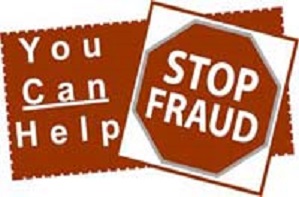Restricted Goods
These are goods, whose importation require a permit issued by a Regulatory Authority or are subject to quantitative restrictions. From time to time, the Ministry of Trade and Industry publishes Restricted Imports and Exports Regulations detailing restricted imports and exports as well as the manner in which the restrictions are to be applied. The Regulations may change in a very short time, especially with respect to agricultural goods, and it is therefore essential that if a traveller or trader is in any doubt of whether the importation or exportation of a specific group of goods is prohibited or restricted to please contact any BURS (Customs & Excise Division) office before travelling.
Foodstuff
The following consumer goods may be imported for private use without an import permit provided they do not exceed the maximum allowable quantities. The list below is not exhaustive and travelers are advised to consult the Restricted Imports and Exports Regulations for a more exhaustive list.
|
Products |
Maximum Quantity |
|
Red meat, goat/lamb |
25 kg per family |
|
Poultry meat |
5 kg per person |
|
Tinned poultry meat |
20 kg per person |
|
Eggs |
36 eggs per person |
|
Fresh milk |
2 litres per person |
|
Maize and maize products |
25 kg per person |
|
Wheat |
25 kg per person |
|
Pulses (beans, peas, lentils) |
25 kg per person |
|
Sorghum and sorghum products |
25 kg per person |
|
Cabbage |
1 bag per person |
|
Onions |
1 bag per person |
|
Potatoes |
1 bag per person |
|
Oranges |
1 bag per person |
|
Tomatoes |
1 box per person |
|
Choumollier |
2 kg per person |
|
Rape |
2 kg per person |
|
Spinach |
2 kg per person |
|
Bread loaves |
6 loaves per week |
|
Sugar |
12 kg per person |
Domestic Animals
Importation and exportation of domestic animals is closely regulated for public health reasons and well being of the animals. Pets and livestock may be imported into Botswana subject to an Animal Health Certificate issued by the Director of Animal Health and Production, Private Bag 0032, Gaborone, Botswana.
(Note: A valid Certificate of Identity, Rabies Vaccination and Movement Permit issued in Lesotho, Malawi, South Africa, Swaziland, Namibia or Zimbabwe will be accepted at the time of importation into Botswana).
Wild Animals and their Products
Importation and exportation of wild animals or their products (trophy or meat) is prohibited unless accompanied by an export permit issued by the Department of Wildlife and National Parks, P.O. 131, Gaborone, Botswana.
Plants, Seeds, Fresh Produce and Bulbs
These may be imported subject to plant health restrictions. Details in this regard can be obtained from the Chief Agricultural Research Officer, Private Bag 0033, Gaborone, Botswana.
(Note: South African transit permits may also be required in respect of plants shipped through South Africa. Details may be obtained from the Director of Plant Control and Quarantine, Private Bag X179, Pretoria, South Africa)
Soil
Soil is considered the loose surface material of the earth in which plants, trees and scrubs grow. In most cases the soil consists of disintegrated rock with an admixture of organic material and soluble salts. The importation of soil is prohibited unless accompanied by an import permit from the Director of Crop Production and Forestry, Private Bag 003, Gaborone, Botswana.
Boats
No boat, mokoro or aquatic apparatus may be imported into Botswana unless the owner is in possession of an Import Permit issued by Department of Water Affairs.
Firearms and Ammunition
- Firearms and ammunition may only be imported into Botswana upon production of a Police permit issued by the Central Arms Registry, P O Box 334, Gaborone, Botswana.
- The issue of firearms licences in Botswana is strictly controlled and all firearms imported under the authority of an import permit must be licensed immediately upon arrival in Botswana.
- The importation of firearms, which do not have the manufacture’s serial number or other number by which they can be identified, stamped or engraved on a metal part of the weapon, is totally prohibited.
- It should also be noted that Police permits for firearms are issued on a limited quota basis and there can be a considerable delay in obtaining a permit, particularly on first importation. It is advisable for importers to make application well in advance of dispatch so that unnecessary inconvenience and expenses are avoided.




